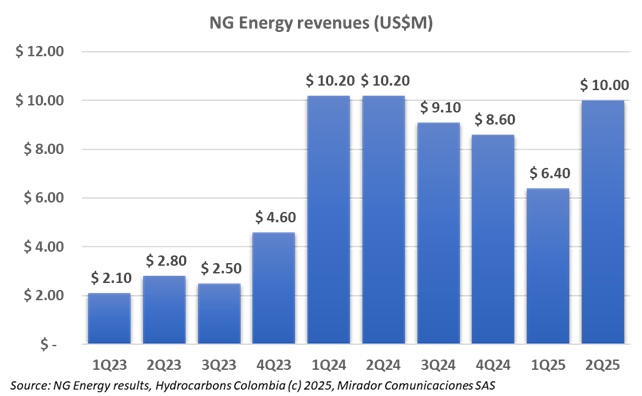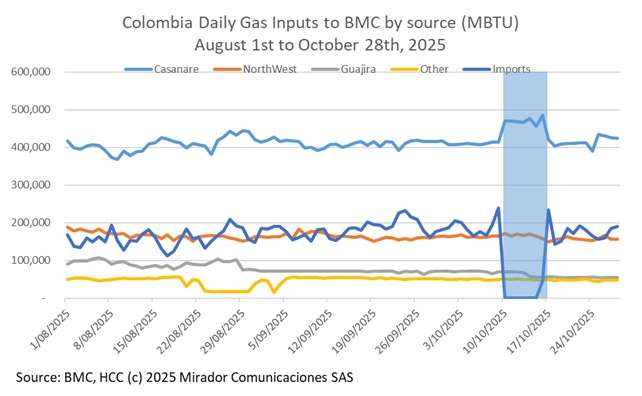Canacol Energy (TSX: CNE) issued an official statement following notification of a national arbitration ruling in its long-running contractual dispute with VP Ingenergía, concerning the termination of three gas supply agreements between the two companies.

Canadian explorer NG Energy International Corp. (TSXV: GASX) has announced major operational progress at its two flagship natural gas assets in Colombia, Maria Conchita and Sinú-9, marking what executives describe as a pivotal moment in the company’s growth trajectory.
The world’s appetite for natural gas is set to rise again, and Colombia is watching from the sidelines.
With Colombia’s electric vehicle (EV) market accelerating faster than ever, energy company Terpel is shifting gears to meet the growing demand for charging infrastructure.
A high-stakes tax dispute between Colombia’s tax authority (DIAN) and Refinería de Cartagena (Reficar), the Ecopetrol (NYSE: EC) subsidiary that supplies more than half of the country’s diesel and a third of its gasoline, has triggered fears of an operational shutdown that could threaten the nation’s fuel supply.

Colombian drivers will feel another pinch at the pump starting Friday, October 24, as the Energy and Gas Regulation Commission (CREG) announced an increase in fuel prices.
Petrobras’ (NYSE: PBR) entrance into Colombia’s offshore energy landscape could mark a turning point for the country’s energy security. Together with Ecopetrol (NYSE: ECP), the Brazilian company is leading the Sirius gas project, a deepwater discovery that could restore Colombia’s self-sufficiency in natural gas for at least a decade.
Colombia’s energy transition has become a defining challenge for the oil and gas industry, demanding a delicate balance between maintaining energy supply and reducing carbon emissions. Notably, nearly 70% of Hitachi Energy’s industrial revenue in Colombia comes from projects developed with oil and gas companies.
The Colombian government is reaffirming its commitment to energy security through the planned regasification plant in Ballenas, La Guajira, a cornerstone project expected to strengthen the country’s natural gas supply over the next decade.

Recently, we published an article that showed what happened when the country’s only regas facility, SPEC, closed for scheduled maintenance. One might have expected that since SPEC programmed the maintenance well in advance, some planning might have avoided any stress about shortages. We look for evidence of that planning. (UPDATE: Technical difficulties overcome and graphs and full text now loaded.)